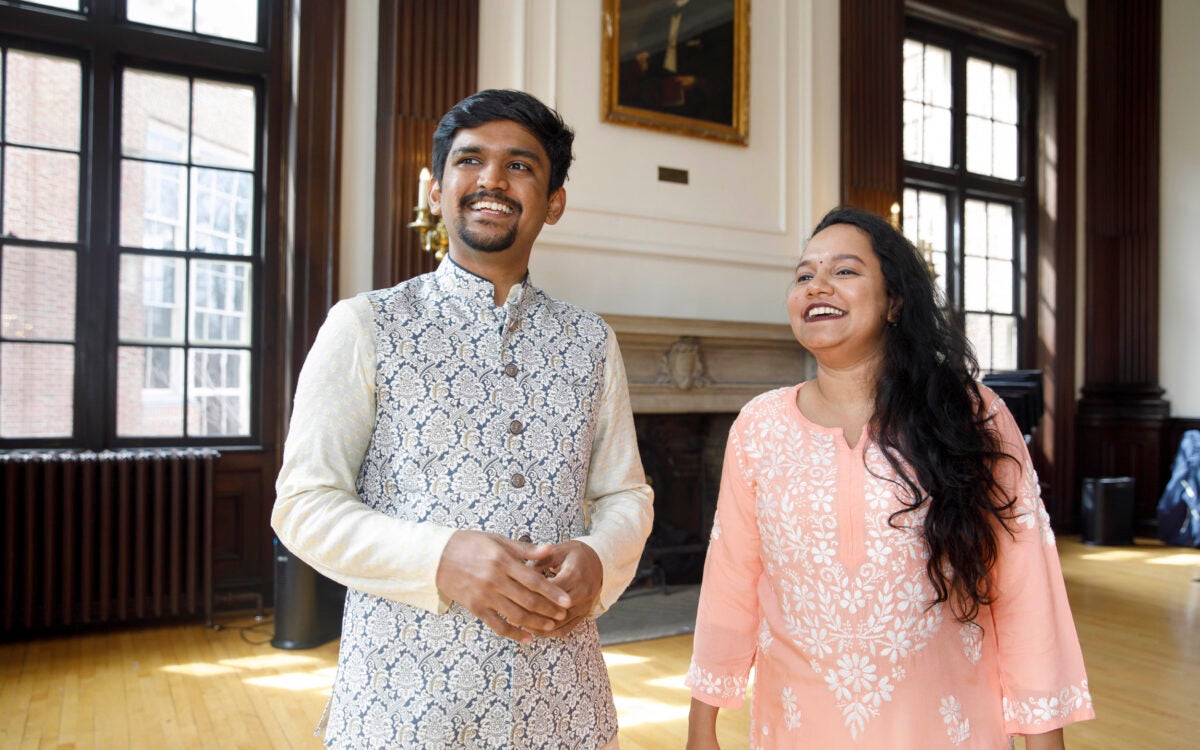Changing behavior: Easier than we thought?
Looking at ‘small interventions, large effects’
At a Harvard-convened social science research conference on Nov. 14, 2003, research from the fields of economics, social psychology, and public health showed how psychological changes could affect sexual health, retirement savings, marketing, and sustainable public health in developing nations. “These interventions are by and large noncoercive and tend to be very effective,” said David Laibson, professor of economics at Harvard and conference organizer. “The question we want to ask is, Are these psychologically styled interventions important elements to be added to our arsenal of policy interventions?” The answer turned out to be a qualified “yes.” For example, James Choi, a graduate student in Harvard’s department of economics, presented research on retirement savings. In a study co-authored by Laibson, he proposed an “active decision” model to enrollment in a company’s 401(k) plan that proved a practical alternative to effective but paternalistic default options. Choi and his colleagues studied a company that, for a certain time period, required employees to make an active decision regarding their retirement savings: They were told that they must actively choose either to enroll in or decline the company’s 401(k) plan. The researchers found that the active decision model not only boosted employee participation rates over a model in which the default is nonenrollment, it also increased the average rate of savings.




